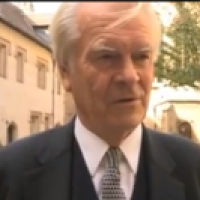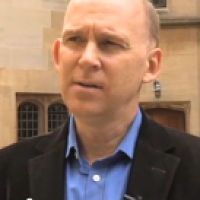Indexes - all Resources
Status differentiation and the protean self: A social-cognitive model of unethical behavior in organizations. (2011)
“The news lately is replete with .. high level executives of nearly bankrupt companies cutting jobs, pay, or pensions with one hand, while accepting bonuses and fantastic perquisites for themselves with the other .…we demonstrate how high status individuals will be more vulnerable to engaging in unethical activities.” Bella L. Galperin, University of Tampa, Rebecca J. Bennett, Louisiana Tech University Karl A...
Written by: Galperin, B. L., Bennett, R. J., & Aquino, K.
Read moreLord Owen: what is Hubris Syndrome? (2011)
An introduction to the concept of Hubris Syndrome and how it manifests in leaders. “.. I’ve grown increasingly worried about … the way in which decisions are made … by leaders, and the tendency to develop what I’ve called Hubris Syndrome. Lord David Owen, former Minister of Health and Foreign Secretary. Author of The Hubris Syndrome and Trustee, the Daedalus Trust. http://youtu.be/3sKb6LuM...
Written by: Owen, Lord David.
ViewDr John Coates: role of hormones in risk-taking. (2011)
Dr John Coates discusses the study of hormone levels in City traders which indicates increased testosterone associated with success leading to tendency to take bigger risks; cyclical process: higher testosterone, bigger risks till crisis point reached; parallels in animal world. John Coates is Senior Research Fellow, University of Cambridge and former Wall Street Trader. He is interviewed here before the start of the Daedalus Trust /Brain Mi...
Written by: Coates, Dr John.
View
We don’t know what we don’t know. (2011)
"It is a law of human nature," David Brooks writes, "that the more men you concentrate in one happy pack, the more each will come to resemble Donald Trump. Tony Schwartz HBR Blog Network, July 2011 "It is a law of human nature," David Brooks writes in his newest book The Social Animal, "that the more men you concentrate in one happy pack, the more each of them will come to resemble Donald Trump. They poss...
Written by: Schwartz, Tony.
Read more
Neuroscience and leadership: the promise of insights. (2011)
“For the last 100 or so years, we have studied leaders’ personality, intelligence, values, attitudes and even behavior. But seldom has anyone ventured physiologically inside of leaders. Richard Boyatzis, Professor in the Departments of Organizational Behavior, Psychology, and Cognitive Science at Case Western Reserve University. Featured in Ivey Business Journal, January / February 2011 An introduction to some impor...
Written by: Boyatzis, Richard
Read more
Relevance of neuroscience to the business environment. (2011)
"Neuroscience is highly relevant to the language and process of coaching in the executive environment. And it can be used in practical and effective ways to enhance the execution of strategies.” Srinivasan Pillay, M.D., Assistant Clinical Professor of Psychiatry at Harvard Medical School, certified master executive coach, and brain-imaging researcher Published in FT Press 21 February 2011 A chapter from Pi...
Written by: Pillay, Srinavasan
Read moreLeadership and the rise of the corporate psychopath: What can business schools do about the ‘snakes inside’? (2011).
"... business school students value empathy least, are more self-interested, (and) demonstrate 50% more cheating behaviour than any other major." Dr Amanda Gudmundsson and Gregory Southey, Queensland University of Technology, Australia. E-Journal of Social & Behavioural Research in Business, 2(2), 18-27, 2011. “The global leader of 21st century business is forecast … to require a clear vision (to deal with increas...
Written by: Gudmundsson, A., & Southey, G.
Read moreA first-rate madness: uncovering the links between leadership and mental illness. (2011)
"The very qualities that mark those with mood disorders—realism, empathy, resilience, and creativity—also make for the best leaders in times of crisis. Nassir Ghaemi, Professor of Psychiatry and Pharmacology at Tufts Medical Center in Boston, where he directs the Mood Disorders Program A "myth-shattering exploration" of the powerful connections between mood illnesses (depression and bip...
Written by: Ghaemi, Nassir.
Read more
The relevance of Nash equilibrium to psychiatric disorders. (2011)
"the Nash equilibrium is a prominent tool for analysing any interdependence between interacting parties. The Nash equilibrium could aptly be introduced for describing a patient’s mental health status. Tassos Patokos, ...
Written by: Patokos, Tassos.
Read more
Domain expertise insulates against judgement bias by monetary favors through a modulation of ventromedial prefrontal cortex. (2011)
"We used the same art-viewing paradigm to test a prevailing idea in the domain of conflict-of-interest: that expertise in a domain insulates against judgment bias even in the presence of a monetary favor. Ulrich Kirk (1), Ann Harvey (1) & P. Read Montague (1,2). 1. Virginia Tech Carilion Research Institute, Human Neuroimaging Laboratory, Virginia Tech, Roanoke 2. Department of Physics, Virginia Tech, Bl...
Written by: Kirk, Harvey and Montague.
Read more









